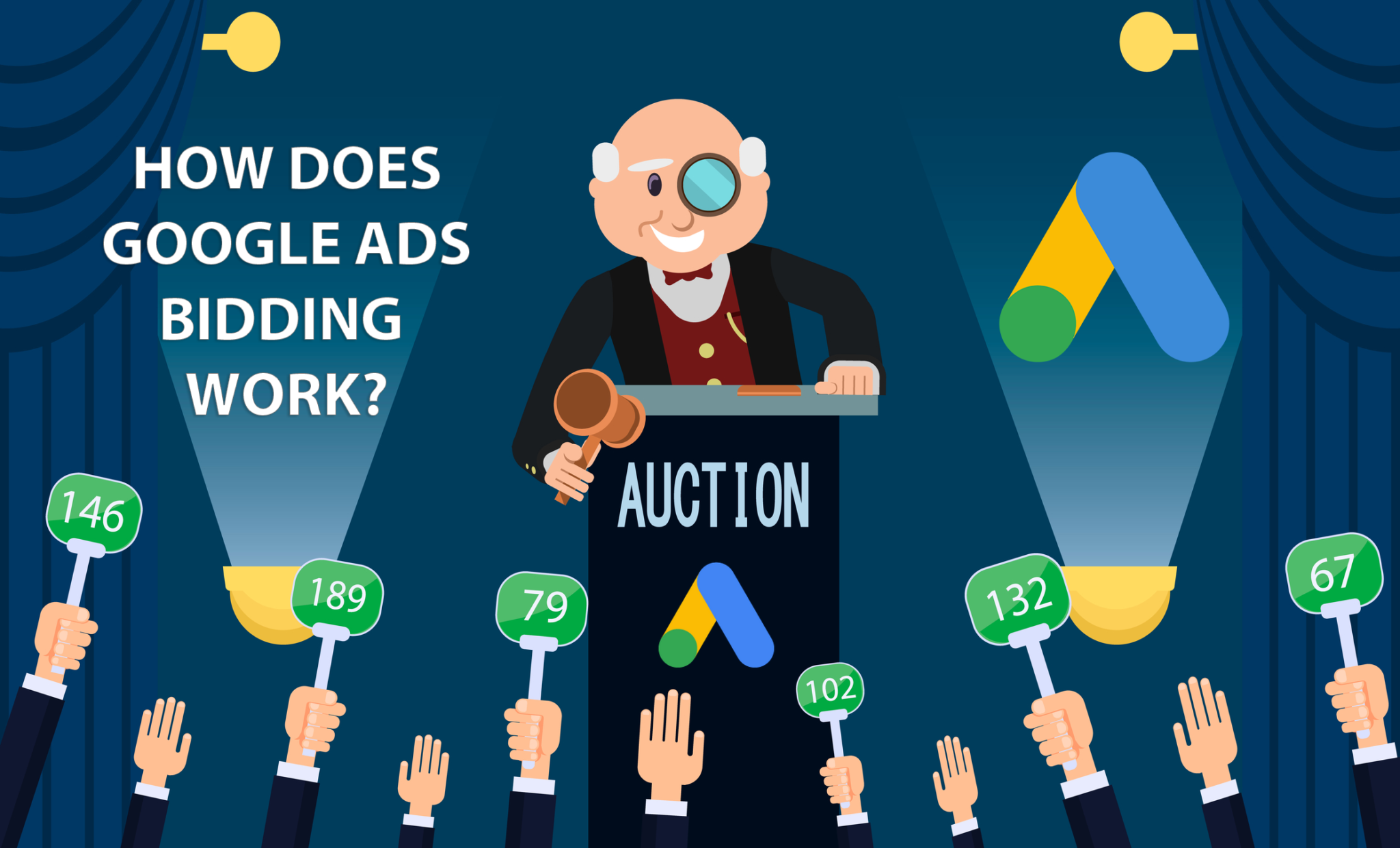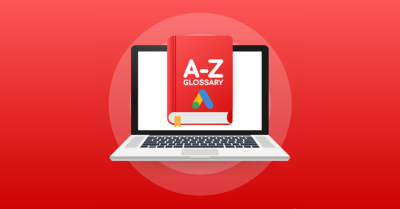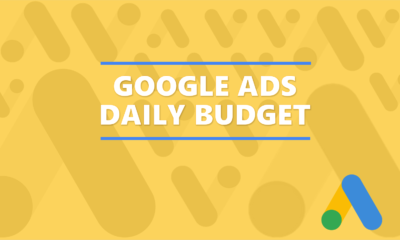Google Ads run on an auction system, meaning each time your ad is displayed its bid has won against a competing ad. Most commonly, this comes into play with Search ads when competing ads have a designated cost per click (CPC). However, there also are other bidding models and the bid isn’t necessarily won by the account with the largest budget. Quality and relevancy are also factors in winning a Google Ads auction.
Understanding Google Ads
Google Ads comprises of four major products – Search, Display, Video, and Shopping. Search and Display ads were the original formats offered by Google, and in recent years Video and Shopping ads have exploded in popularity.
No matter which ad format you choose, during set-up you will be asked to enter budget items such as your daily budget target and how much you are willing to pay per area of focus. These focus areas are defined as clicks, impressions, conversions, or views.
Once your campaign has been set up, any ad in that campaign must enter an auction before being served to the public. Winning ads will have a combination of a competitive bid and a strong Quality Score, which takes into account factors such as relevance and the likelihood that somebody will click on your ad.
Google Ads Bidding Explained
How you manage Google Ads bidding for your account can be fairly simple or become complex, depending upon many factors. Not all bid strategies are the same. And, what works for one account may not yield the same results for another account.
With that said, here’s a quick breakdown of bidding and how it relates to winning the ad auction.
The winning ad will be the one with the highest Ad Rank, which is Cost multiplied by Quality Score. Let’s look at each of these separately.
Cost
Const takes into account factors such as your daily budget and the maximum you are willing to pay per click, impression, conversion, or view. To determine the daily budget, divide your monthly budget by 30.4. Google may decide to go above or below this budget day-to-day, but will use your daily budget as a guide. (It’s best to monitor the spend every few days if you are worried about surpassing your monthly spend, or if you have some flexibility just have the expectation that budgets tend to either under- or over-spend and require ongoing optimization.)
As far as how much you are willing to pay per your area of focus, this entirely relies on the type of bidding strategy you choose. For example, a very common bidding method is Maximum Cost per Click (Max. CPC).
Here’s a look at the other bidding strategies available on Search ads:
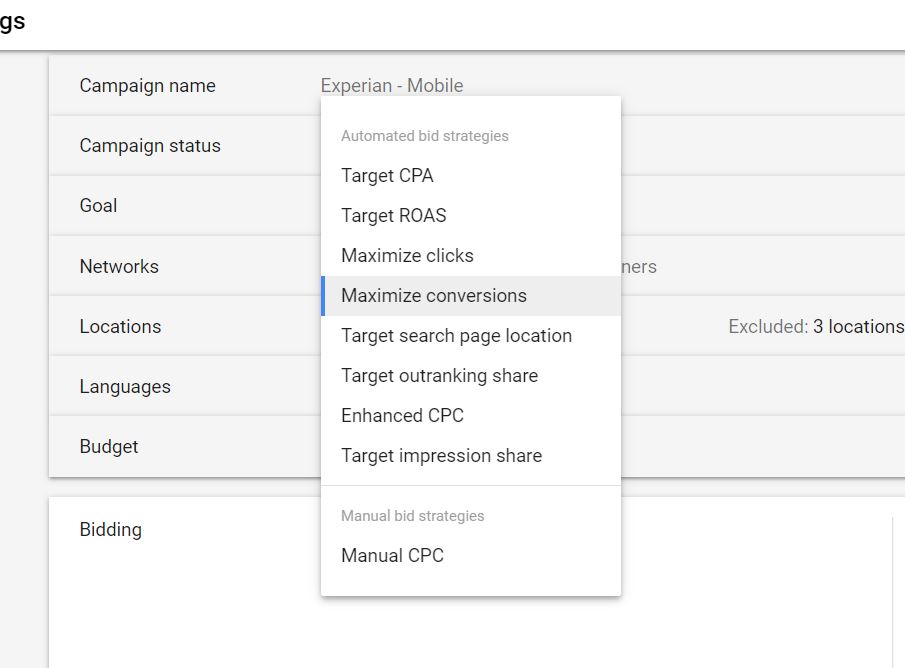
To date, there are 12 bidding strategies across all formats. For example, those running YouTube ads will have the option to bid based on Cost per View or Cost per Viewable Thousand Impressions.
Quality Score
Quality score is defined by Google as “an estimate of the quality of your ads, keywords, and landing pages. Higher quality ads can lead to lower prices and better ad positions.”
In order to poise your ads for the best Quality Score outcome, make sure your ad copy matches your keywords and landing pages. This will send Google a relevancy signal, but it’s also important that your ads and landing pages are well written and optimized for conversions. It’s not enough to sprinkle your keywords in the ads and landing pages. Winning marketing collateral also includes compelling calls to action and outlines the benefits and features of the product or service.
Here’s a breakdown of what occurs during a Google Ads auction in more detail:

How Do I Set Up A Bid on Google Ads?
Know that you know how Google Ads bidding works, let’s go over how to setup different bidding strategies. When setting up your campaign for the first time, you will be asked about your daily budget, how you want to pay for results, and how much you are willing to pay per result. To change an existing account’s bidding strategy, go to Settings → Bidding. From there, select the blue link that says “Change bid strategy.”
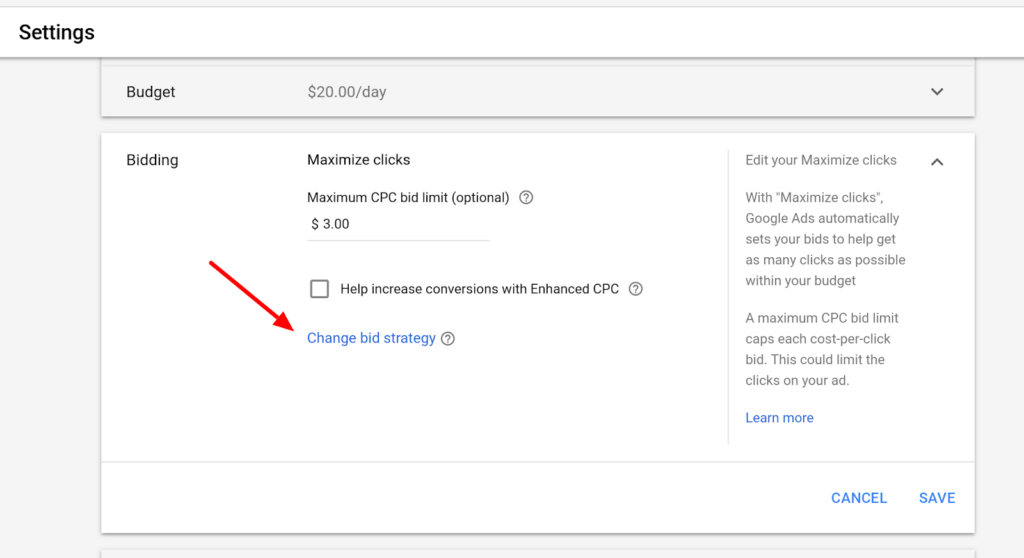
How Much Are Google Ads bids?
There are many factors that go into how much a winning bid will cost. It will depend on which ad format you use, as well as which action you prioritized when you selected your bidding strategy. Once you have set your budget strategy and your cost per focus area, your ad will be sent out “in the wild”, where it will encounter another set of factors that influence what the winning bid will be.
For example, average CPC for a given keyword can vary based on industry, location, competitiveness, and many more factors. For example, we’ve seen personal injury terms can exceed $100 in some highly competitive areas. But, these are rare instances and definitely not the norm. In other industries and markets, we can be competitive with clicks around $1.
The Wrap Up
I hope this article answered the question; “How does Google Ads bidding work?” The auction works behind the scenes and uses a myriad of signals to determine what ads to show. Your goal is to get your ad in front of your targeted audience so you can compel them to take action. Fortunately, you have several different types of bidding strategies you can employ. If one type of bidding is not helping you get the results you want, then test another one. Bidding is a key component to running a successful Google Ads campaign and know how bidding works will certainly help you.

